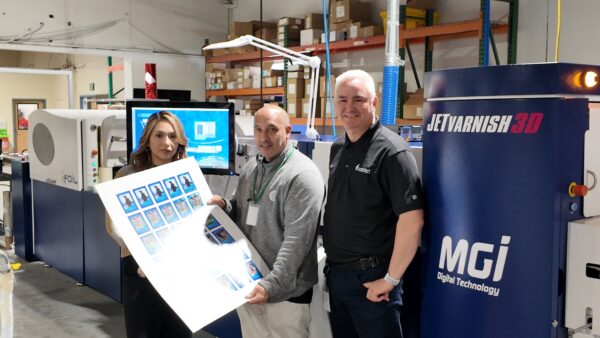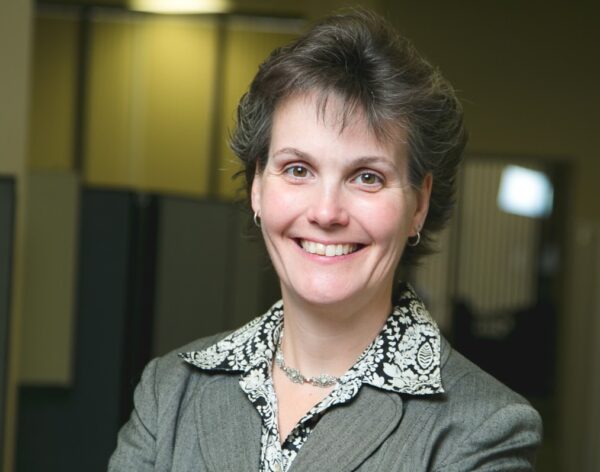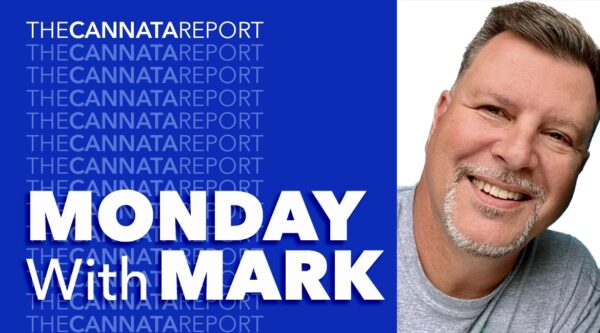with Chelsey Bode | Arial Harland | T. Michael Laverty Jr. | Christian Mastrodonato | Cheri Pupi | Chris Roll
written by Sharon Tosto Esker with Kate Gragg and CJ Cannata
presented by ACDI

Above (from left to right): Chelsey Bode, Arial Harland, T. Michael Laverty Jr., Christian Mastrodonato, Chera Pupi and Chris Roll
Five years ago, in 2014, The Cannata Report launched its first initiative to highlight our industry’s diverse workplace with our first Young Influencer themed issue. Our main goal was and remains to acknowledge, highlight, and promote young people performing critical roles within our industry. We wanted to emphasize the importance of different perspectives from varied demo graphics, showing how a broader base of thought can contribute to success not only for individual companies but also for the industry as a whole.
We were also looking to generate more excitement among young professionals ““ those under 40 years old ““ about our industry, as well as increase awareness of these young professionals among more-established executives.
We also wanted to provide companies across all segments of this industry with a medium to help attract a more diverse and broad-based pool of talent to the industry, especially as dealers continue to struggle to attracting and retaining talent, as indicated consistently in our yearly dealer surveys.
In our five years, we are proud to have accomplished our initial goals and to have continued to spotlight what we consider some of the most important people to watch in the years to come.
This year, our six Young Influencers are blazing trails both in their own careers and in the industry at large. They are digital natives, emerging entrepreneurs, and innovators in the truest sense. Defying stereotypes of their generation, they are committed to their professions, looking to grow, giving back to their communities, and imaging a dynamic future not only for themselves, but also for this industry.
CHELSEY BODE
President, Pearson-Kelly Technology
Age: 34
Self-described as: competitive, extrovert, self-motivated
Favorite band: Green Day
Favorite pastime: Spending time with her family, husband Kraig, daughter Ryann (6 years old), and son Hudson (3 years old) at Table Rock Lake
Volunteering: Board of Good Samaritan Boys Ranch, Rotary Club of Springfield Southeast
Favorite food: Chips and salsa
Favorite book: “The Ideal Team Player: How to Recognize and Cultivate the Three Essential Virtues” by Patrick M. Lencioni
Favorite movie: “Stepbrothers”
When Chelsey Bode signed on to help her father, Mike Kelly, get his new company Pearson-Kelly Technology off the ground, she was thinking she’d spend two years there and move on to another sales role with another company. Having graduated from Missouri State University with a B.S. in merchandising and marketing in 2006, Bode joined Pearson-Kelly Technology as its sixth employee in 2007.
The workplace technology industry wasn’t new to Bode. She had grown up watching her father excel in major account and sales management at Modern Business Systems, which was later acquired by IKON. Inspired by his strong work ethic, passion for the industry and its people, and his success, Bode interned with IKON’s outside sales team during her college years to gain some experience with the intent to pursue a career in medical equipment sales.
Like any employee at a start-up, she began in an outside sales role, helping to establish Pearson-Kelly Technology’s customer-driven brand, but would step up to do anything her father and the company needed to put the dealership on a path to consistent growth and success.
“The first year was awful, but I’m very competitive and I wanted to win,” said Bode. “We rolled up our sleeves, worked as hard as we could, and hoped we would keep moving forward.”
From eight to five, she was fully committed to her sales position to help the company make its first dollars. However, the rest of her time was spent bolstering the company’s web presence, insuring the company’s brand was communicated (even though she had no advertising budget), and taking advantage of free networking opportunities through community and Chamber of Commerce events in the Springfield, Missouri area.
At the end of her two years with the company, Bode stayed on, with her eyes set on an upward career path with leadership opportunities.
“It was the excitement of the game and seeing the light at the end of the tunnel,” said Bode. “As larger organizations began taking a chance on us, and as we were able to recruit better talent to join our team because we were big enough to have a team””it just became very exciting and I became addicted to it.”
By the end of 2007, Pearson-Kelly Technology pulled in slightly less than $1 million in annual revenue. Today, annual revenues are north of $5 million.
In 2011, Bode was promoted to vice president. In 2016, after developing a solid succession plan with her father to navigate the company through any potential deaths or life transitions, Bode began buying into Pearson-Kelly Technology. In April 2018, she was elevated to president of the company she helped build from the ground up.
“I love the competitive nature of the business and I love winning with people,” said Bode, who remains committed to challenging herself and continuing learning more about the business, especially within the managed services space. “If that means that we get a large deal, that’s fantastic. But, if it’s that an employee who is more of an introvert starts flourishing, understanding our systems better, and finds a better way to do a process, those wins get me excited just as much.” – S.E.
_______________
ARIAL HARLAND
HR and Organizational Development Consultant, GreatAmerica Financial Services Corp.
Age: 27
Favorite musician: Taylor Swift
Favorite pastime: crafting
Goal & Quote: Completing her master’s degree in organizational leadership at St. Ambrose University: “I wanted to help more people at once. Organizational psychology focuses on the strengths of people. How do you help people be their best selves?”
All Arial Harland ever planned to be was an athlete. A promising young runner at her Illinois high school, she was persuaded to cross the river to Iowa and join St. Ambrose University’s cross-country team. She chose to double-major in psychology and organizational science, the study of optimizing organizational practices to get the best out of people. The idea of working with the psychology of whole teams, instead of solely individuals, fascinated Harland.
“I wanted to help more people at once,” said Harland. “Organizational psychology focuses on the strengths of people. How do you help people be their best selves?”
Harland takes a lot of inspiration from “Positive Psychology” founder, Martin Seligman, whose practice focuses on evolving past an organizational approach that seeks to ensure every individual meets the status quo. In Positive Psychology, the goal is less focused on homogenizing teams, and geared more to getting the best out of each person and helping everyone’s best efforts complement each other. Attending a keynote speech by Seligman helped Harland crystalize her professional goals.
“I knew I wanted to find a place that focused on strengths, that thought about their people as their most valuable assets, building a culture that really enables people to succeed,” said Harland. “People told me again and again, you should check out GreatAmerica.”
Harland started small, taking on an entry-level role as a sales support specialist, but after only a few months, her talents at building a rapport with people were noticed by Sally Brause, GreatAmerica’s director of human resources consulting, who brought Harland onto her team. Harland now helps GreatAmerica clients optimize their own teams and advises them on recruiting new talent.
“Clients often have a good sense of things like, I need to hire people, but not necessarily all the ways you could go about doing that successfully,” she said.
Her goal is always to educate people, so even if a client isn’t ready to move forward after their initial meeting, at least they leave armed with new information that can help them meet their goals. To that end, Harland frequently contributes to webinars aimed at educating the managed print services industry on organizational psychology topics, specifically on how corporate culture can contribute to, or hinder, growth.
“I think the biggest roadblock is culture feels so intangible,” she observed. “We all know we want a good culture, but what does it actually mean on an organizational level? How would I align my organization toward a common purpose, reinforcing beliefs and behaviors that I’m trying to see?”
Like a lot of things, the answer is simple, but not easy. Harland cautions cultivating that kind of culture takes “100% commitment” from not only the C-level, but also from mid-level leadership.
“We have a hiring process, a cultivating culture process, but every business is different and so the assistance we provide is very customized,” said Harland. “Look for those people in your organization who are passionate, who are your culture champions. I don’t think I could be successful without that passion.” – K.G.
_______________
T. MICHAEL LAVERTY JR.
Business Development Manager, Colony Business Systems
Age: 33
Self-described as: ambitious, passionate, caring
Favorite musicians: B.B. King, Fats Domino
Favorite food: Thai
Favorite book: “Unbroken” by Laura Hillenbrand
Favorite movie: “Forrest Gump”
Volunteering: Knights of Columbus, as well as coaching football and baseball for children with special needs with his wife of two years, Samantha
Favorite pastimes: Playing baseball, softball, gardening, spending time with his family
For as long as T. Michael Laverty Jr. can remember, he has had a job. From the age of 11 years old, he has hustled, doing everything from construction, house painting, lifeguarding, babysitting, and working third shift at a car-parts foundry.
“Work ethic and earning my way in life were bred early on,” said Laverty.
While studying business administration, marketing, and management at Elizabethtown College in Pennsylvania, he also managed the cafeteria’s dinner staff. In his last semester of his senior year, he took a sales position with national lawn and landscape services provider TruGreen.
“This was my first opportunity to cut my teeth in sales,” said Laverty, who began working over 40 hours a week, as he finished the last of his college course work to graduate. “I was out in neighborhoods, knocking on doors, pounding the phones.”
Wanting to establish normal office hours, after a year, Laverty attended a college fair at his alma mater and clicked with dealership Colony Business Systems.
“I got a good feeling from the sales manager at the time, the ownership group, and the people who work here,” commented Laverty. “Our company is celebrating its 50th anniversary this year, and our tagline that we’re branding with is, “˜Treating Customers Like They’re Family for 50 Years.’ It’s a locally owned, family-owned business. It’s not a big corporation where you’re just a number to them.”
That family feel is exactly what has kept Laverty at Colony Business Systems for the past 10 years. Beginning as a sales executive on April 2008, Laverty was promoted to business development manager in 2012. Among his many responsibilities, he oversees a young sales team, as well as provides a youthful energy and different thought process to the company’s senior management team.
Laverty familiarized himself with the copier industry by taking advantage of any trainings offered through Colony or the manufacturers themselves, and supplementing that base of knowledge with reading anything he could to further develop himself in outside, business-to-business sales, including many books by Jeffrey Gitomer.
“You have to invest yourself in what you choose to do,” said Laverty. “In outside sales, you really have to plant roots and absorb everything. Job jumping isn’t an option. I tell my sales team, just keep swinging the bat. Get out there, make calls, follow up with customers, and have patience. I do believe the harder you work, the luckier you get.”
Also influencing him to this day is his “circle of trust,” friends and mentors Laverty has met through school or in the workforce. Laverty regularly reaches out to these trusted advisors to get their perspectives on any number of issues he is facing at his job or in his career.
“I’m a people person,” said Laverty, who truly values the opportunity to work with a variety of customers in his central Pennsylvania territory, from chocolate, syrup, snack-food manufacturers to an Amish print shop. “I have a thirst for knowledge and I enjoy what I learn and can gain from interactions. My family says I ask too many questions, but you don’t learn unless you ask questions.” – S.E.
_______________
CHRISTIAN MASTRODONATO
Chief Technologist, Konica Minolta
Age: 36
Self-described as: Energetic, innovative, and curious
Favorite pastime: Spending time with his family, especially his wife Francesca
Favorite band: Dream Theater
Favorite food: Pizza, gnocchi and pesto, focaccia
Favorite movies: “The Big Lebowski” and “Blues Brothers”
Favorite book: “Why Information Grows: The Evolution of Order, from Atoms to Economies” by César Hidalgo
When Christian Mastrodonato was about 13 years old, he received two books for Christmas that captured his imagination and would inspire him to become a true innovator in the technology world: “Lord of the Rings” by J. R. R. Tolkien and “A Brief History of Time” by Stephen Hawking.
“Tolkien wrote a perfect book, building a universe, a world from the ground up,” said Mastrodonato, who was raised in Genoa, Italy. “And “˜A Brief History of Time’ looked at the science of the world, something I could study. Even though it is probably outdated today, at that time, it described the boundaries of our knowledge. It was a compendium of astrophysics.”
Interested and curious about the world around him and beyond, Mastrodonato committed himself to study physics and computer science. Having finished both undergraduate and graduate degrees in physics at the Università degli Studi di Genova, Mastrodonato completed two years as a visiting scholar in the United States at New Jersey’s Rutgers University and earned his Ph.D. in physics from his undergraduate and graduate alma mater. All the while, he cycled on a national level in Italy, training several days a week, several hours a day.
“While I found studying physics very interesting, and I would do it again, I didn’t really want to pursue physics in an academic career,” said Mastrodonato, who had developed a strong background in statistics as well. “It was too theoretical, and I wanted to do something in the real world.”
To launch his professional career, Mastrodonato looked to the IT and software industry, starting as a software developer and analyst for a small Italian company. Always looking to try and do new things, Mastrodonato then transformed himself into what he describes as an innovation consultant.
“I was still focused around software, but it wasn’t about building programs any longer,” said Mastrodonato. “It was about going into different industries and solving problems with software. I would go into a specific company, understand what they needed to change, and help them transform their business, create new lines of business with a software- and technology-based approach.”
In 2014, he joined Konica Minolta as a chief technologist and service lab manager. At the time, Konica Minolta was setting up its Business Innovation Center in Europe.
“From day one, we knew we had to make an impact and make the company better,” said Mastrodonato. “That was our job.”
Today, Mastrodonato is primarily responsible for Konica Minolta’s new Digital Workplace’s R&D branch, where he manages the technology strategies from conception to implementation and go-to-market launch, as well as the continued support and further development of those initiatives.
“It’s rewarding because we actually have an opportunity to make an impact,” said Mastrodonato, who credits Konica Minolta’s senior management team and CEO Shoei Yamana for setting the company’s vision and supporting its culture of change. “We’re creating an ecosystem around analytics, internet of things, artificial intelligence. This is just the beginning from a technology standpoint, and this is where the real fun starts.” – S.E.
_______________
CHERA PUPI
Strategic Partner Manager, Office Equipment, Continuum
Age: 31
Favorite pastimes: Walking her dog Clinton, biking
Goal: More travel
Quote: “First and foremost, be patient. A lot of positive things come from experience.”
Chera Pupi often laughs that she uses none of her education in her current career.
“I was going to be a teacher,” said Pupi. “That’s all I ever wanted to do.”
Armed with a B.A. in English literature and a secondary education teaching certificate, Pupi taught troubled kids on the south side of Chicago. She soon realized teaching wasn’t for her, but looked to sales in the education field as a potential good fit. Online curriculum sales evolved to educational software sales. Subsequently, she became involved with managed IT services in higher education, which is what brought her to Continuum, where she applies her teaching skills in a different way by training client partner sales representatives.
A lot of these partners are just getting started with growing their managed IT services business, so she does a lot of educating, relaying best practices.
“I get up in front of a group of office equipment sales reps who are like, why would I change how I do things? I sell copiers. I make good money,” said Pupi. “I put my teacher hat on and I convince them to try something new.”
Having gone through a series of transitions in her own career makes Pupi uniquely qualified to speak to these reps, who are in an industry that’s changing around them. She believes that everyone can adapt to change, but the fact remains that not everyone will.
“It’s definitely scary to step outside your comfort zone,” she said. “When you meet a new group of salespeople for this kind of training, you can tell going in who is likely to be on board for change and who will simply move on, but I try not to have preconceived notions.”
One of Pupi’s tools for reaching sales reps who may be resistant to learning new approaches is her credibility. She was in sales herself for years, and when she talks about strategies she personally found success with, she often succeeds in engaging even the most reluctant reps.
Convincing people to adopt new strategies isn’t just a matter of professional pride. Since Continuum has so many clients in the healthcare industry, failure can have implications beyond the balance sheet, which adds an additional layer of pressure to Pupi’s drive to succeed.
“I don’t struggle with staying motivated, but sometimes I struggle with feeling overwhelmed,” commented Pupi. “My manager, Matt Hubbell, is one of the most intelligent people I’ve ever met, but he’s also super laid back. He can just look at me and tell when I might be getting too worked up.”
For Pupi, focusing on how her contributions make a difference centers her.
“I see myself as my clients’ advocate,” said Pupi. “In a lot of instances, I know that my actions and persistence are sometimes the only reason why things get worked out.”
It’s a lesson only time taught her, and one she hopes future young influencers take to heart.
“First and foremost, be patient,” she observed. “A lot of positive things come from experience.” – K.G.
_______________
CHRIS ROLL
Field Sales Manager, Pacific Office Automation
Age: 29
Favorite pastimes: Playing drums, sailing, seeing live music
Goal: Grow every year
Quote: “You’re able to learn a lot from osmosis when you’re exposed to people that have different [sales] styles.”
After getting a degree in business at the University of Oregon, Chris Roll only knew he wanted a job working with people. Taking advantage of his university’s career advisory department, he connected with Pacific Office Automation (POA) and participated in a “ride along” program, where he shadowed a field sales rep for an entire day, effectively an all-day job interview.
“After spending eight hours with someone, you really get to know who that person is,” recalled the 29-year-old Roll. “It’s an interview both ways.”
Both POA and Roll passed the test, and Roll has been working his way up the ranks there for the past eight years.
Following his time as “the worst cold-caller Pacific Office ever had,” a tenure that included accidentally attempting to sell copiers to another branch of his own company, Roll buckled down and learned everything he could about sales, from the “old school” techniques the most experienced reps relied on, to newer strategies embraced by younger reps, and eventually developing his own hybrid approach.
“It’s about understanding how to connect the dots,” said Roll.
Now, Roll manages a team of field reps of his own and is actively involved in recruiting and training. He prefers to hire reps straight out of college, so they come in with no expectations, a blank slate he can fill in with strategies that suit not only POA and its clients, but also the individual reps themselves.
“We’re very detailed in our sales training process, but part of it is that trainees need to experience things on your own and bring back questions,” explained Roll. “You can learn a lot from osmosis when exposed to people that have different styles. You take up what you feel most comfortable with within our sales process, and eventually your personality comes through.”
A large part of Roll’s management philosophy comes from his training on competence and authority. New recruits arrive in an “unconscious incompetent” state, where he says they “don’t even know what they don’t know.” With a little training, people soon become conscious of their incompetence during the second phase. The third phase is “conscious competence,” where things are working but it requires constant effort and vigilance. A trainee will be an effective sales rep by that point, but things don’t really get cooking until the final phase, “unconscious competence,” the natural, muscle-memory employment of long-practiced skills that can be seen in people at the top of their fields, like pro athletes.
Many of Roll’s recruits are athletes themselves. The natural competitive drive is a good fit for sales, and athletes are intimately aware of the connection between consistency, hard work, and success. This attitude serves Roll and his team well when it’s time to course-correct and problem solve. If someone is struggling to meet their sales goals, he observed, “It’s no different than watching film. If you lost the game, you analyze why and you problem solve.”
POA has grown in every one of its 41 years, so the pressure to succeed is paired with the observable fact that it cannot only be done, but it must be done consistently.
“If they win, I win,” Roll ultimately and succinctly concluded. – K.G.




